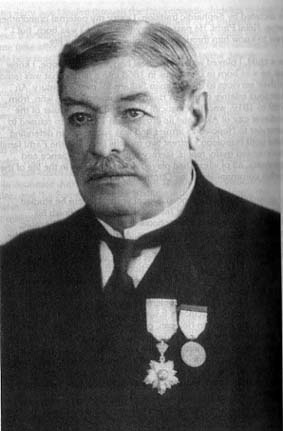THE FARHI SIDDUR
You may remember that I consulted you some months ago about
a claim made in the introduction to the new edition of my
grandfather's Siddur that he was the first to translate
our prayer books into classical Arabic.
A version of the 1917 edition of the Farhi Siddur has now
been reissued and I have asked the U.K. distributor - The
Association Of Jews From Egypt (UK), to send you a copy
with my compliments.
I would be most interested to know what you think of the
quality of be Arabic translation if you ever have the time
to glance at it.
I do of course realise that The Scribe is concerned primarily
with Babylonian Jewry and that a Hebrew/Arabic siddur that
was widely used in Egypt may not be of immediate interest
to many of its readers. However, Egypt was well within the
jurisdiction of the Exilarchs and so I am hoping you may
consider the book appropriate for a mention in a future
edition of the Scribe.
I attach for your further information a notice that I prepared
for The Sephardi Bulletin.
Lucien Gubbay
The Siddur Farhi
Lucien Gubbay, grandson of the author, writes:
The re-issue of the Hillel Farhi's Siddur of 1917 (in Hebrew
and Arabic), with a preface by his grandson Alain Farhi
and an Introduction by Joseph Mossers, is sure to be of
great interest to Jews from Egypt and Syria, whose parents
and grandparents may well have used it for their daily prayers
- as well as to Arabic scholars.
Hailed by the rabbis of his time as a healer of souls for
his work in translating the Siddur into eloquent Arabic
verse and thus enabling the masses of Jews who knew no Hebrew
to pray with real understanding for the first time, Hillel
Farhi went on to translate the festival prayer books and
those for Rosh Hashanah and Kippur. Though Judeo-Arabic
(in Hebrew characters) versions of the Siddur had once existed,
Farhi was the very first to translate the prayers and other
liturgical and religious texts into literary Arabic (in
Arabic script) and was thus a true pioneer.
Educated in Beirut and London, Dr Farhi was a well-known
Cairo physician who heated the poor free of charge. Cast
in traditional Sephardi mould, he was also a considerable
scholar, grammarian and poet who wrote and translated many
books - both religious and secular.
This latest version of his Farhi Siddur includes the long
obituary, published by L'Aurore on the author's death in
1940. This starts by describing him as one of the last of
the Mohicans and includes many fascinating details of his
life, work and scholarship - including his decoration by
King Fouad of Egypt for services to the Egyptian Railways
and recognition by the British Red Cross for work during
the First World War. Hillel Farhi lived in those seemingly
far-off days when Jews and Muslims in Egypt lived side by
side with a reasonable degree of harmony and mutual respect.
Will they ever return?
Dear Lucien
Thank you for your letter regarding the Farhi Siddur, and
also the siddur itself, which I received from the distributor.
I think that the Arabic translation is of very good quality
and I did not find at a general glance any possible mistakes.
The only thing I noticed was that the translating does not
distinguish between Elohim and Jehova ; the first should
be rendered as Allah and the second as El-Rabb. In English
it is God and the Lord.
The claim that this is the first translation of the prayer
book into Arabic is probably correct, since in Babylonia
it was unthinkable that people could pray in any language
other than Hebrew. In fact many of us knew all the prayers
by heart and were more at home with the Hebrew version than
with any translation, whether colloquial or grammatical.
I wish to add that "Allah" was the name of a pre-Islamic
Arab deity, which also had a feminine version being "Allet".
We shall certainly include a mention of this important
publication in the current issue of The Scribe no. 76, which
is still on the Internet, and which will be closed shortly.
Naim Dangoor
Siddur Farhi
Published by the Farhi Foundation
email: siddur@farhi.org
http://www.farhi.org

Dr. Hillel Farhi
1868 - 1940
If
you would like to make any comments or contribute to The
Scribe please contact
us.